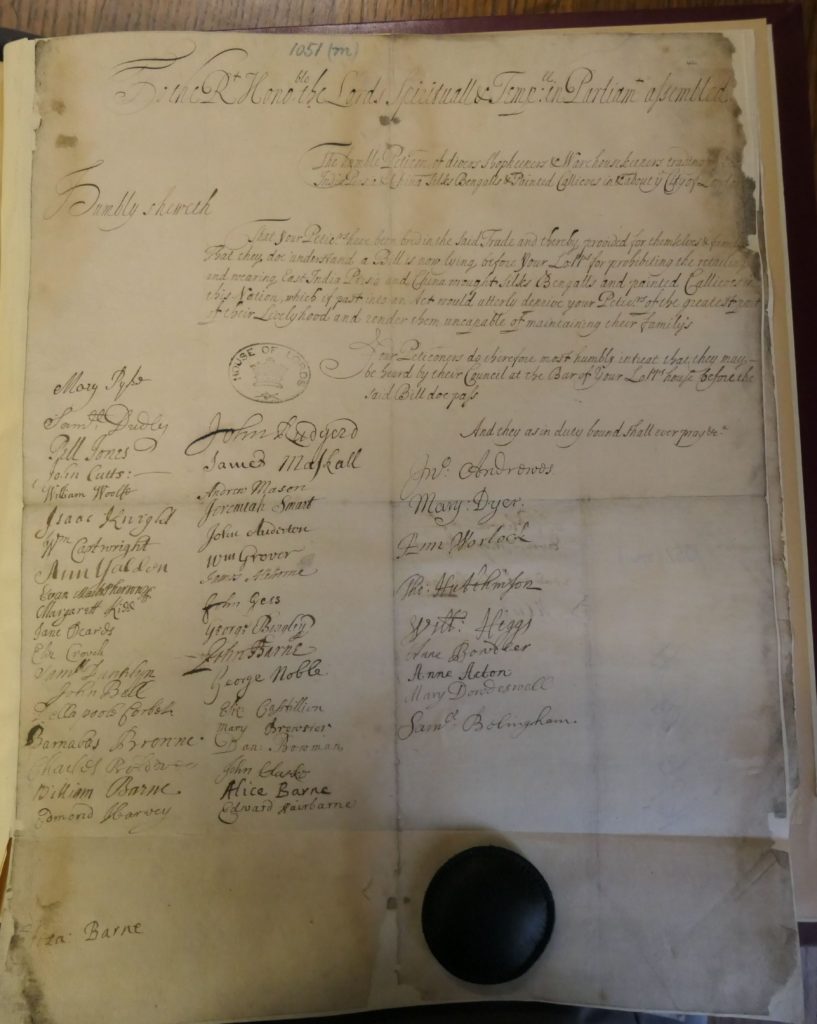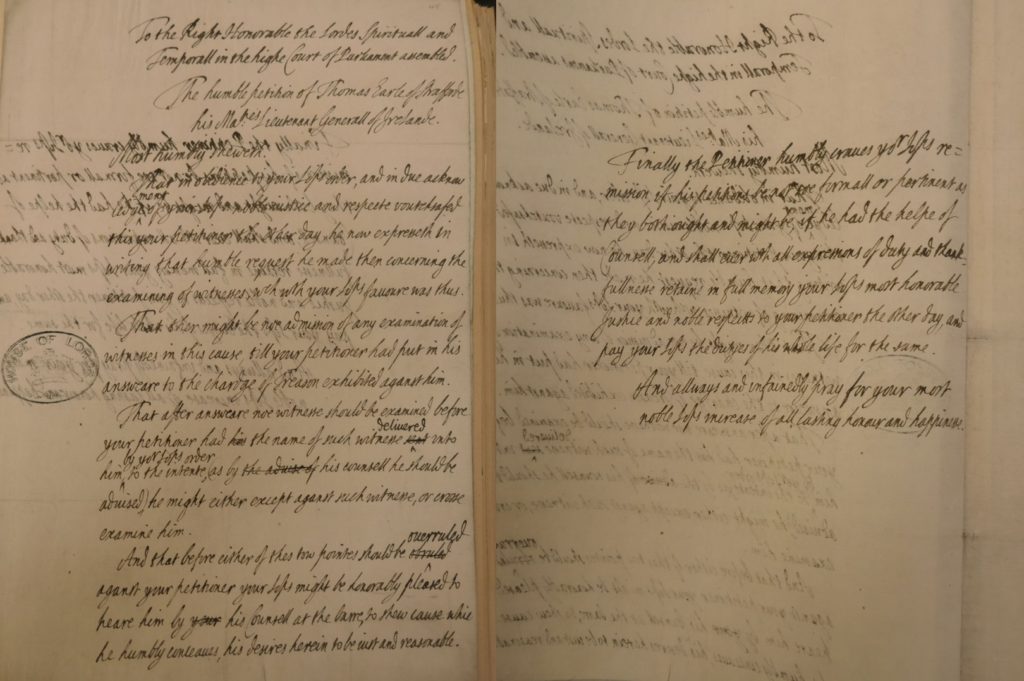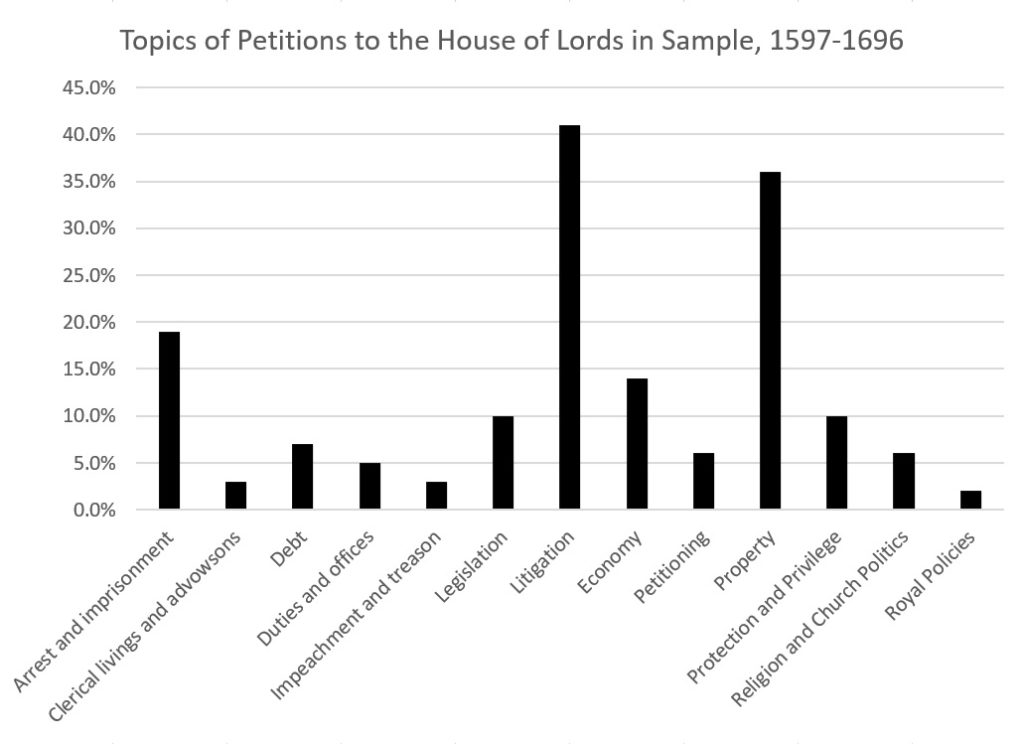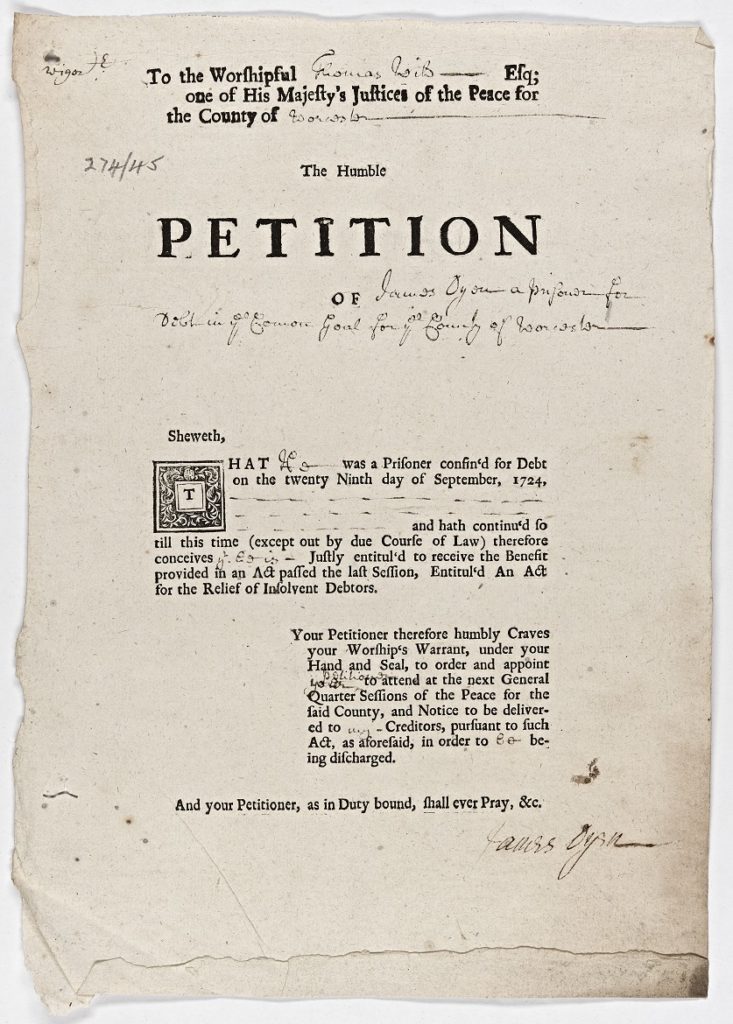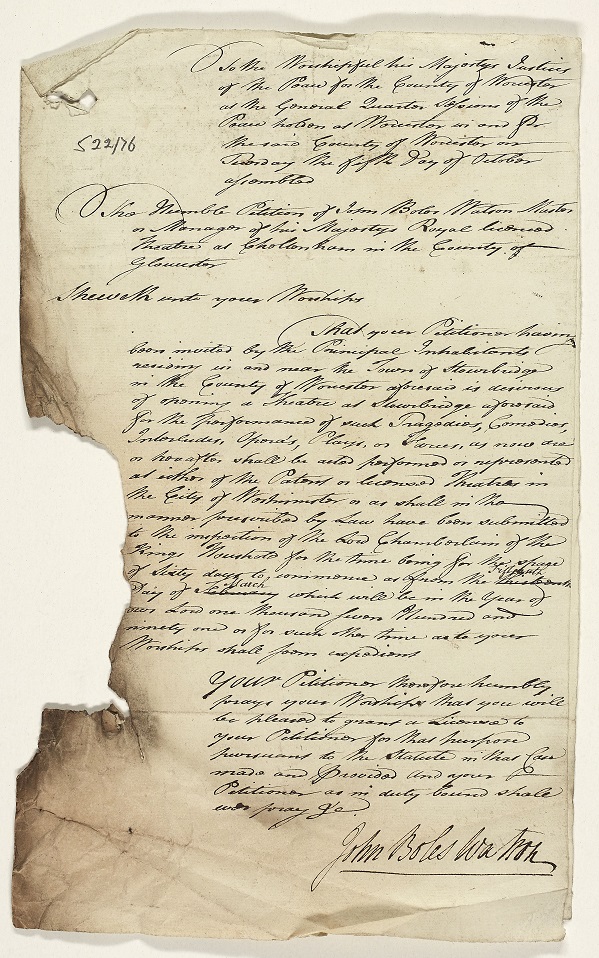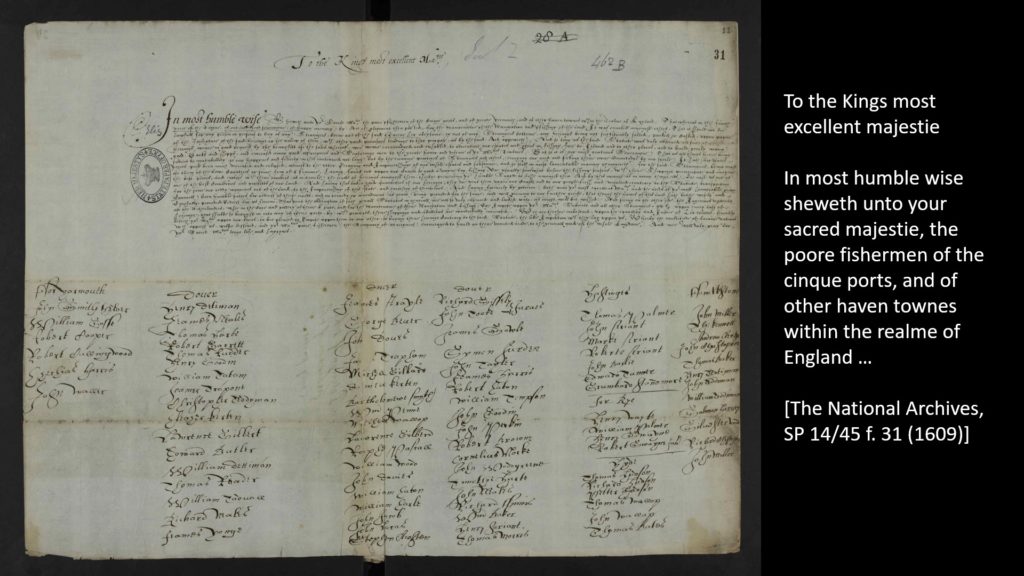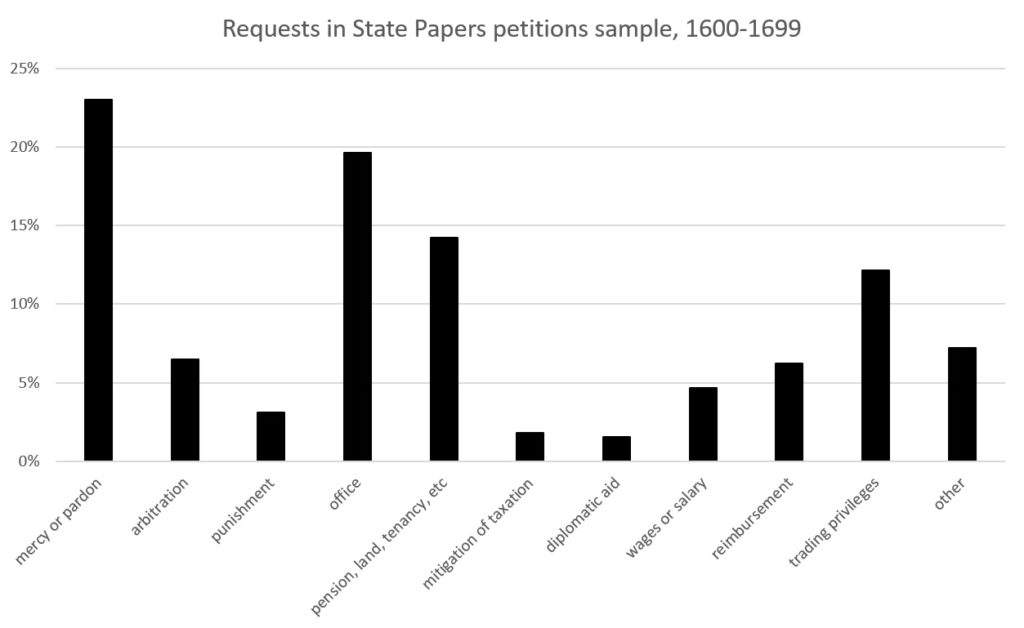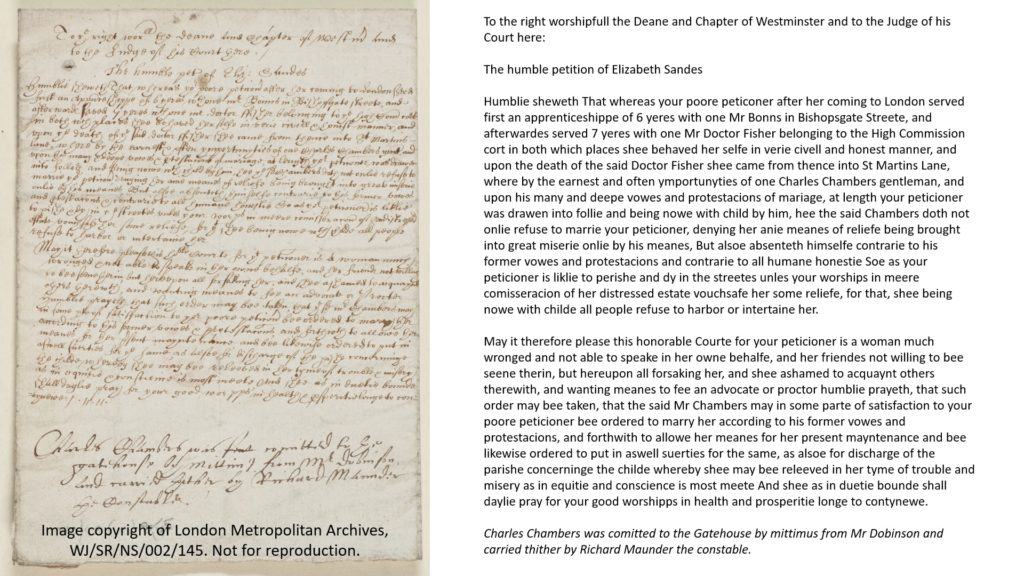After publishing the full transcriptions of about 2,500 petitions and supplications on British History Online, we got a bit distracted with various other things. But we are now pleased to announce that we are making freely and publicly available all our data from these petitions, plus several hundred others to augment the core collection.
Specifically, anyone can now download the metadata for 1,728 petitions to local magistrates – including 321 extra items for Cheshire which are not transcribed on BHO – 732 petitions to the House of Lords, and 387 from the State Papers, amounting to 2,847 petitions altogether. In addition, each set had a separate table of petitioners and subscribers, which adds up to a total of 9,584 individuals. Here it is:
Although it is already possible to do straightforward keyword searches of the British History Online petitions, this data includes lots of additional information that is not readily apparent in the transcriptions and it also is much easier to analyse quantitatively. The metadata for each petition includes key attributes such as year, topic, gender, number of subscribers, and more. This means that users can now easy narrow their investigation to, for example, only petitions submitted by women before 1640, or only petitions about alehouses with more than 10 subscribers.
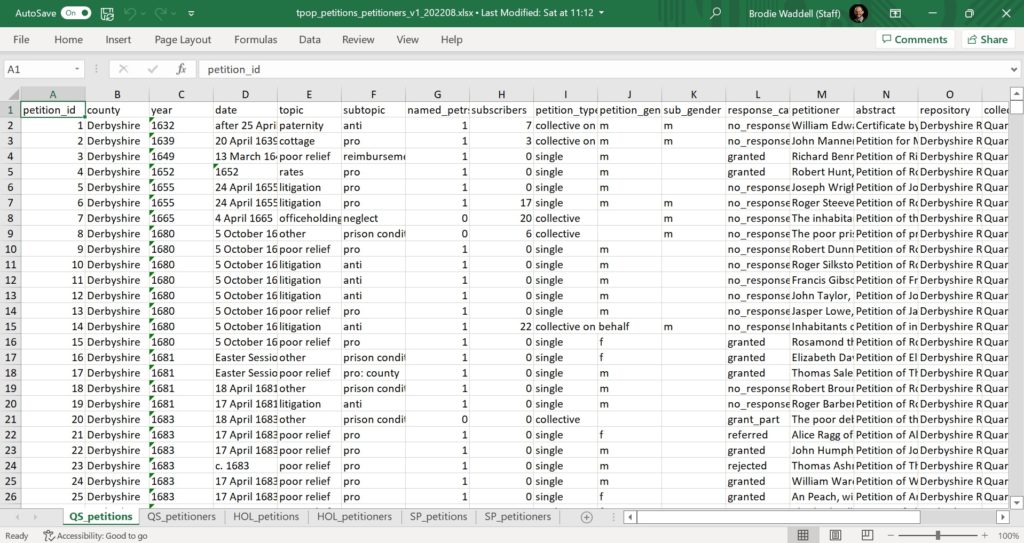
We hope that this will allow users to do much more with the material and also consult it more effectively. Searching the full transcriptions on British History Online will still be necessary for many types of research as the metadata files do not include the transcriptions, yet this new data should vastly expand the range of ways that you can engage with these sources.
Please read the documentation before attempting to use this data because there are many peculiarities and some potentially confusing terminology which could result in misleading interpretations if not treated with due care and caution.
We are publishing the whole dataset under a CC-BY-SA licence, which means it can be recycled and reused without fear of copyright infringement. That said, it is important to note that this is the product of considerable labour by the project team and others and it should be cited as: Brodie Waddell and Sharon Howard (2022) The Power of Petitioning in Early Modern England, 1573-1799, version 1.0 [dataset].
An Arts and Humanities Research Council Research Grant (AH/S001654/1) provided the primary funding for the project from January 2019 to December 2020. It was also supported by two Economic History Society Carnevali Small Research Grants: funding for a pilot project in 2014-15; funding to enable the addition of 18th-century Quarter Sessions petitions (2019-20). IHR Digital contributed much technical work and advice. Gavin Robinson and Tim Wales transcribed the petitions. The metadata was created by Brodie Waddell (mostly Quarter Sessions and State Papers), Sharon Howard (Cheshire and extensive overall data extraction, cleaning, organisation, etc.), Jason Peacey (mostly House of Lords), and Anna Cusack (some QS topics). The original material comes from Cheshire Archives and Local Studies, Derbyshire Record Office, Staffordshire Record Office, London Metropolitan Archives, Worcestershire Archive and Archaeology Service, the Parliamentary Archives, The National Archives, and the State Papers Online.
In addition to the version on Zenodo with a DOI <https://doi.org/10.5281/zenodo.7027692>, an exact mirror has also been published on GitHub <https://github.com/sharonhoward/tpop>.

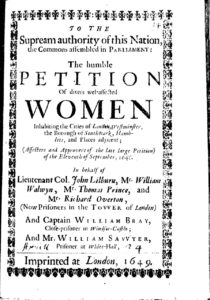
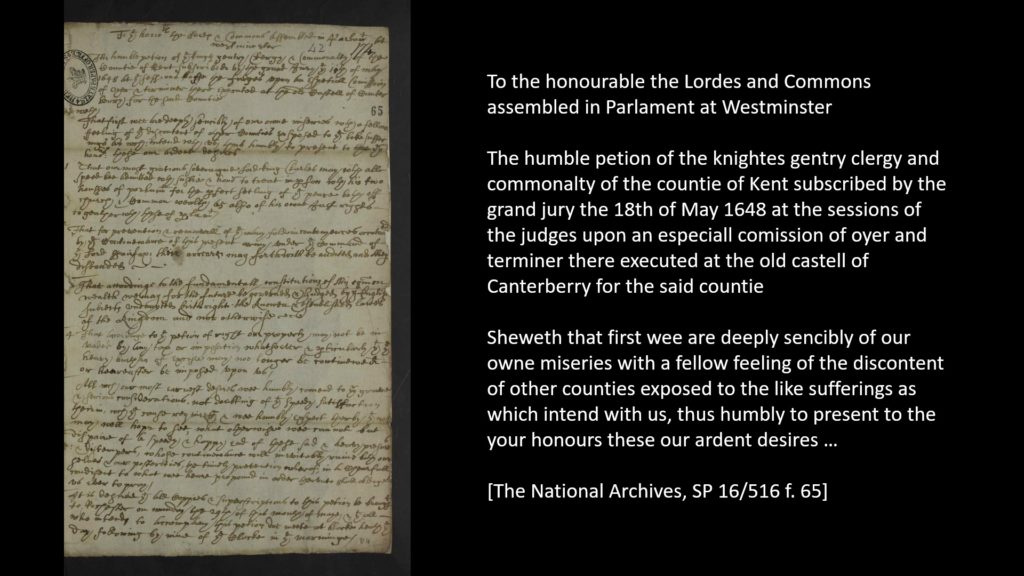
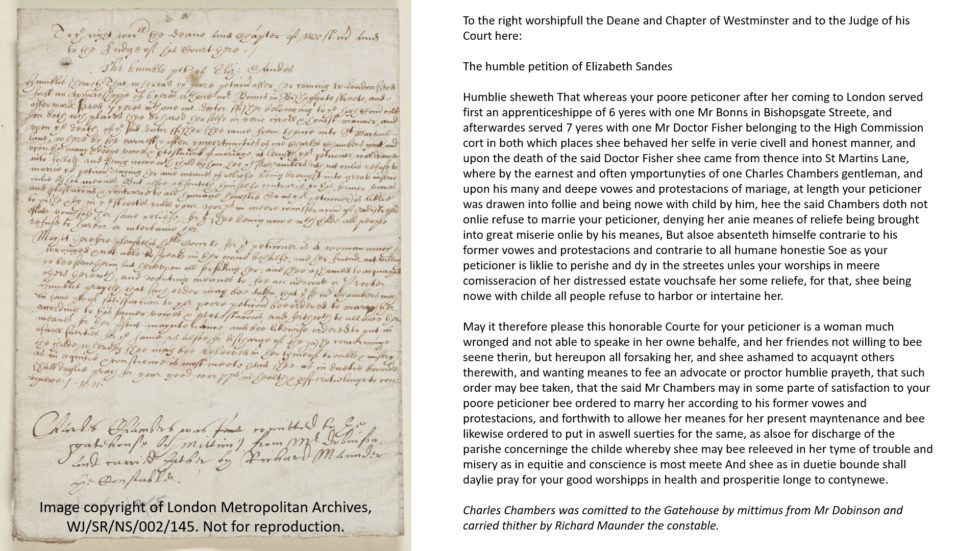 The ‘humble petition’ of Elizabeth Sandes (1620) in which she sought relief from the Dean and Chapter of Westminster Abbey; shown here alongside the transcript published in British History Online. Unless granted, ‘your peticioner is liklie to perishe and dy in the streetes’
The ‘humble petition’ of Elizabeth Sandes (1620) in which she sought relief from the Dean and Chapter of Westminster Abbey; shown here alongside the transcript published in British History Online. Unless granted, ‘your peticioner is liklie to perishe and dy in the streetes’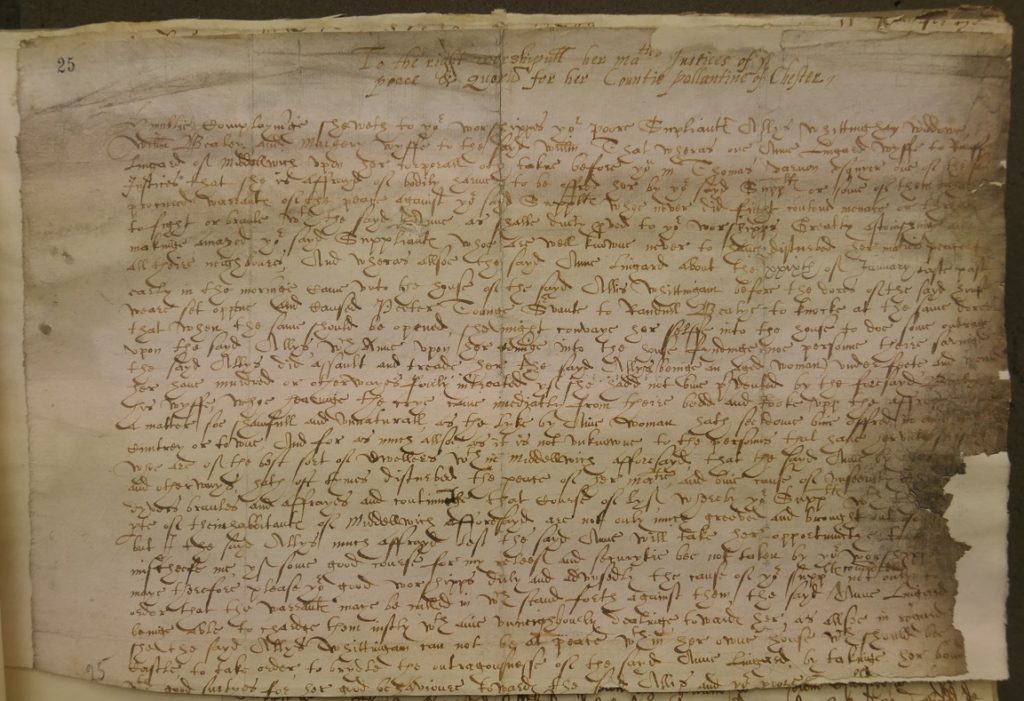
![To the right reverend, and right honourable the lords spirituall and temporall in this high and most honourable court of Parliament assembled. The humble peticion of Philip Page [1624]. Image courtesy of the Parliamentary Archives, HL/PO/JO/10/1/23.](https://petitioning.history.ac.uk/wp-content/uploads/sites/3/2020/08/1PagePetition-1024x696.jpg)
